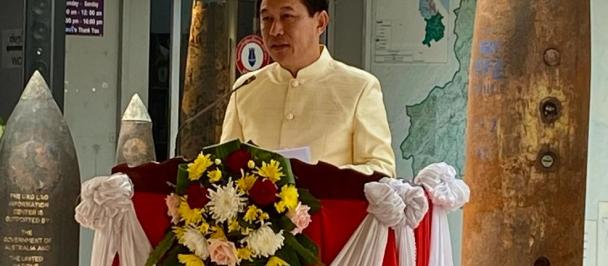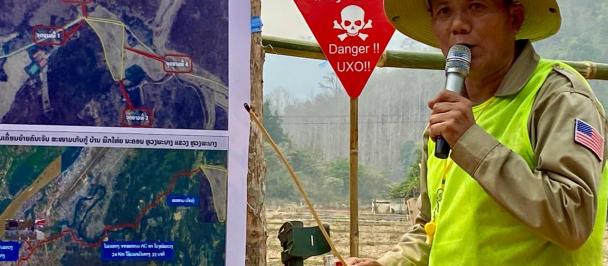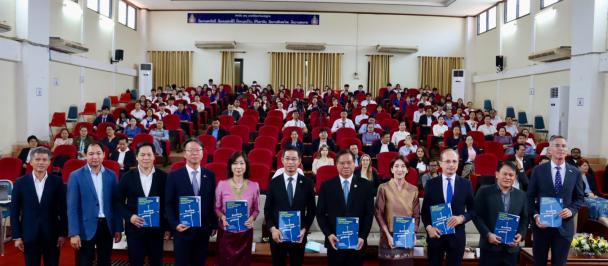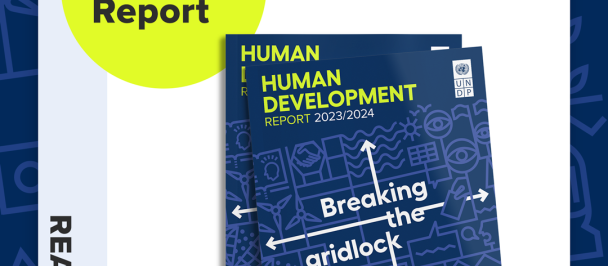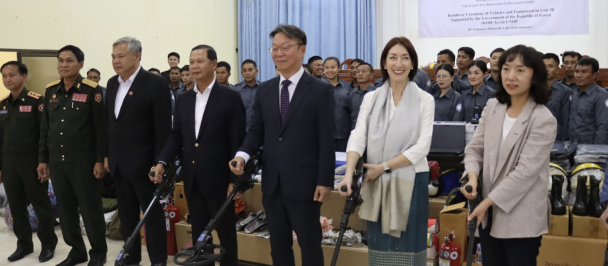Corporate Social Responsibility Could Help Promote Lao PDR’s Tourism
October 26, 2023
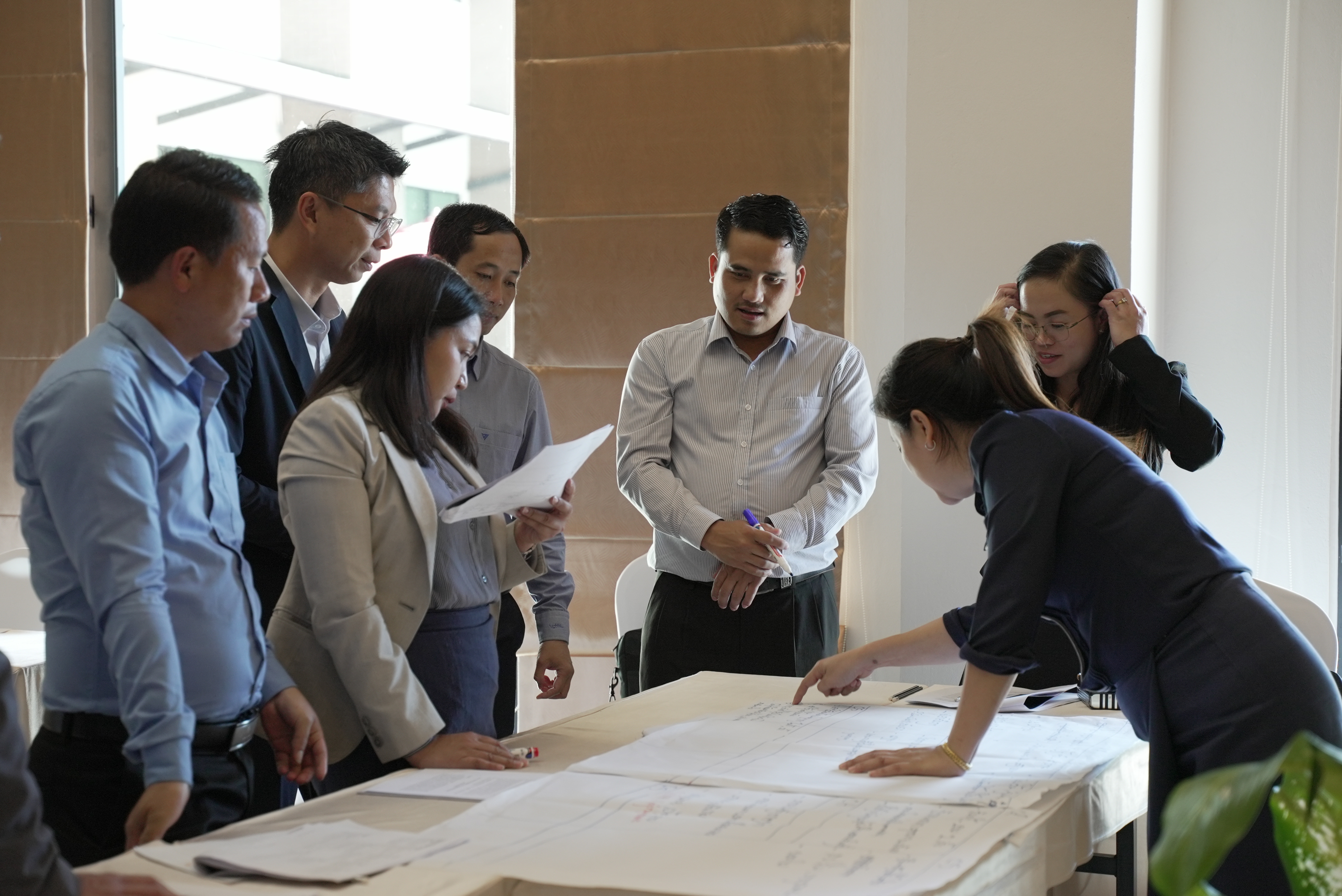
The town of Luang Prabang sits on the wide, muddy waters of the Mekong River, and is one of Lao PDR’s most famous tourist destinations. Visitors from around the world come to admire its golden temples and colonial buildings, and to enjoy the tropical mountains.
After a quiet period during COVID-19 pandemic, Lao PDR is witnessing a rapid return of tourists to the country. In the first 4 months of 2023, more than 1.1 million tourists flocked into Lao PDR and more are expected in the coming months. The country is getting ready for the Visit Laos Year 2024 to attract more tourists to Lao PDR. To welcome larger numbers of tourists sustainably, the country needs to do more on responsible tourism.
At a local hotel in Luang Prabang, nearly two dozen members of the local tourism community met for a workshop in corporate social responsibility (CSR). Members of the UNDP-UNEP Poverty-Environment Action for Sustainable Development Goals (PEA4SDGs in Lao PDR) organized the event to raise awareness about corporate social responsibility practices.
How CSR Can Help the Tourism Industry Flourish
“I am willing to work on CSR as part of our business not only because I believe that it will bring more guests to us, which it will, but also because I believe in it for the sustainability of our company, culture and environment” said Ms. Alichith Phengsavanh, Manager of Maison Souvannaphoum Hotel, who joined the training event.
Over the past decade, CSR has emerged as one of the most important global trends towards safe, equal, and sustainable working practices. It’s a system of practices that helps agencies, whether in business or government, act in a more conscientious manner. Businesses that follow CSR practices gain competitive advantages by attracting talent, gaining an ethical reputation, and growing their base of clients and supporters.
In Lao PDR, PEA has been working to create a toolkit that will allow organizations to embed CSR in their business practices. One aspect is to build on the culture of generosity, which is a cornerstone of Lao culture especially as part of Buddhism — the national religion. Lao PDR is one of the few countries in the world where monks maintain daily alms round to collect food donations from supporting families, with the local delicacy of sticky rice being a favorite gift.
“The strong evidence of social giving among businesses through charitable projects could be seen as a strong foundation for more systematic CSR to take place across the tourism sector,” according to PEA staffers.
Increasing CSR awareness in the tourism sector
The tourism industry needs the kind of boost delivered by CSR to help it recover from the impact of COVID travel bans. Before the pandemic, international visitors contributed to over 13% of GDP and the tourism sector employed 114,000 people.
But since then, large numbers of people lost their jobs as businesses struggled to stay afloat. As part of an effort to support the recovery of such a key industry, PEA undertook a CSR baseline study on the tourism sector to dive deep into the issues affecting the industry.
“Building on a previous report on CSR awareness in the tourism sector in Lao PDR, this study focuses on the CSR commitment and operationalization aspect of tourism businesses as well as the challenges they face in implementing CSR and mainstreaming it into their core businesses,” the study says.
Researchers found that the concept of CSR is still nascent with limited understanding among the private sector. Indeed, observers at the training day in Luang Prabang remarked that one of the key takeaways for attendees was that CSR covers more than charitable giving.
“CSR is more about impact investing which creates larger and more impactful results for solving social and environmental issues,” group facilitators told attendees at the event.
Another challenge facing CSR implementation is the lack of clear leadership from the business community. In fact, the study found “that only 30% of the locally-owned businesses had CSR aspects written into their vision/mission statements.”
Less than 50% of businesses surveyed had an appointed CSR officer, or a CSR designated liaison in their organizations. Those individuals who worked on CSR often did so on a part-time basis, and only 11% reported that they were able to implement CSR policies without resistance from their senior management. Also, only 34% of Lao-owned businesses are setting aside money for CSR activities.
PEA is also pursuing a multi-stakeholder approach. Quality CSR education could be disseminated in the business community via the Lao PDR National Chamber of Industry and Commerce (LNCCI), for example. The Government could take a more active role in raising awareness of the benefits of CSR for businesses who fulfill their responsibility towards the local community. They could introduce further incentives such as an award program, special certification, or tax incentives.
At the end of a day of rich discussions at the Luang Prabang CSR training, attendees were summing up what they had gleaned. Attendees had their “CSR horizons” broadened via a process of sharing and learning about CSR projects from around the world. “Although CSR implementation in Lao PDR is progressing at a relatively slow pace, it is uplifting to learn that businesses are willing to engage in and take CSR further,” the team says. All that’s needed are supportive and relevant policies that will drive the engagement needed.
The PEA global program helps policymakers draw on best practices from around the world to design development interventions that contribute to both poverty reduction and the preservation of the environment.
------
To learn more, please contact:
Thome Xaisongkham,
Programme Analyst, Natural Resources, Climate Change and Environment, UNDP Lao PDR
E-mail: thome.xaisongkham@undp.org

 Locations
Locations